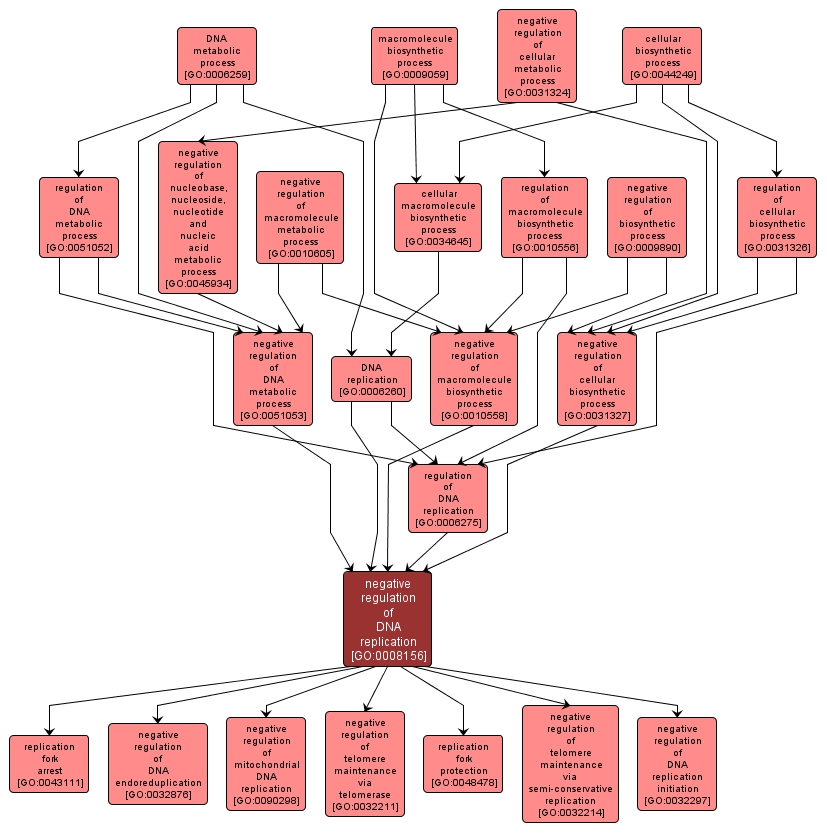GO TERM SUMMARY
|
| Name: |
negative regulation of DNA replication |
| Acc: |
GO:0008156 |
| Aspect: |
Biological Process |
| Desc: |
Any process that stops, prevents or reduces the frequency, rate or extent of DNA replication. |
Synonyms:
- down-regulation of DNA replication
- inhibition of DNA replication
- DNA replication inhibitor
- down regulation of DNA replication
- downregulation of DNA replication
|
|

|
INTERACTIVE GO GRAPH
|














